Summary
The fishing area is popular for its abundant fish species, including bass, bluegill, catfish, and trout. The pond is stocked regularly with trout, making it a prime spot for fly fishing enthusiasts.
Aside from fishing, visitors can indulge in other activities such as hiking, camping, and picnicking. The Tomahawk Pond Trail is a popular hiking trail that offers scenic views of the pond and surrounding forest.
Fishing tips for Tomahawk Pond Day Use Area include using small lures or flies for trout, and live bait for bass and catfish. Fishing early in the morning or late in the evening is recommended, as this is when the fish are most active.
The best time of year to visit Tomahawk Pond Day Use Area for fishing is during the spring and fall seasons when the temperatures are cooler. The average temperature during these times is around 50-60°F. However, fishing can still be productive during the summer months, despite the hotter temperatures.
Overall, Tomahawk Pond Day Use Area is a great destination for fishing enthusiasts looking to catch a variety of fish species, as well as outdoor enthusiasts seeking to explore the natural beauty of Virginia's George Washington National Forest.
°F
°F
mph
Wind
%
Humidity
15-Day Weather Outlook
5-Day Hourly Forecast Detail
Nearby Streamflow Levels
Angling Safety Guidelines
Check local fishing rules, seasons, size limits, and license requirements to ensure legal and sustainable angling.
Handle Fish Responsibly
Use wet hands, minimize air exposure, and release fish gently to improve survival rates when practicing catch-and-release.
Choose the Right Gear
Match your rod, line, and tackle to the species and conditions to increase success and reduce unnecessary harm to fish.
Respect the Waterway
Avoid disturbing habitat, prevent bank erosion, and keep a safe distance from spawning areas to protect ecosystems.
Keep It Clean
Pack out all line, hooks, bait containers, and trash—discarded gear can injure wildlife and degrade waterways.

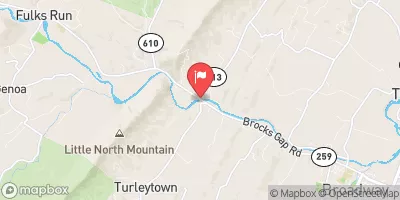
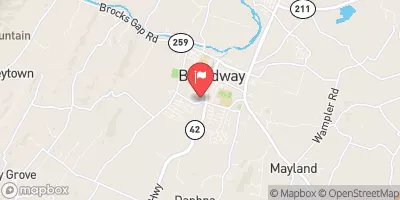
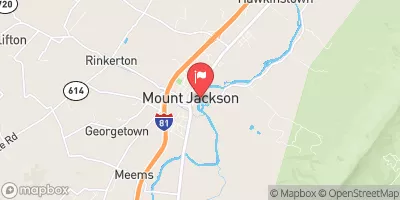
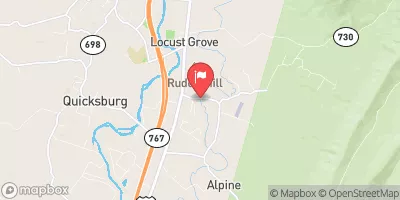
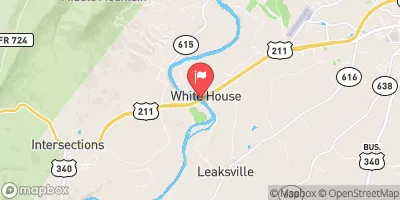
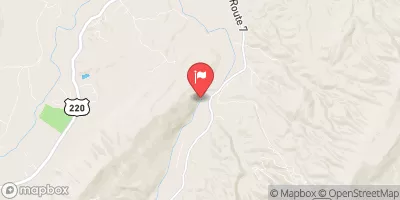
 Stony Creek Dam #9
Stony Creek Dam #9